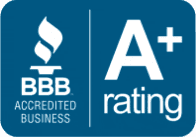Have you been ARRESTED or contacted by the Police, a Detective, FBI, or CPS?
Underage DUI Criminal Defense Attorney in Los Angeles, California
Underage DUI in Los Angeles
The legal drinking age in California is twenty-one years. Anyone under twenty-one who buys or consumes any alcoholic beverage at any on-sale premises commits a crime. This misdemeanor offense is known as Selling or Furnishing Alcohol to a Minor (California Business and Professions Code section 25658:
Things become even worse for an underage person who drinks alcohol or uses drugs and drives.
In California, drivers exceed the BAC (blood alcohol concentration) limit when their BAC reaches 0.08%. But the law differs when the driver charged with driving under the influence (a.k.a. driving while intoxicated) is underage.
Underage drivers can be charged with a DUI if they have a BAC level of as low as 0.01%. This reflects how seriously the courts view driving while intoxicated when the driver is underage (i.e., under age 21).
An Overview of Underage DUI
California has in place two primary laws meant to punish underage DUI offenders. They are:
- California Vehicle Code: section 23136; zero-tolerance law, operating a vehicle with a BAC level of 0.01% or higher; and
- Vehicle Code section 23140(a): operating a vehicle with a BAC level of 0.05% or higher.
These statutes both apply to drivers in California who are under twenty-one years of age. Both can subject the offender to the suspension/revocation of their driver’s license for a year by the California Department of Motor Vehicles (DMV):
Also, both statutes apply even when the driver was not impaired while driving. You violate these laws merely by driving when you have the applicable BAC level and are under twenty-one years old.
Declining to submit to breath testing to measure your blood alcohol concentration does not help. See California Vehicle Code section 23612: (Refusal to Submit to DUI Chemical Test).
Refusing to undergo chemical testing will lead to your driving privileges being suspended or revoked for a minimum of one year.
You may also be accused of violating the state’s standard adult drunk-driving statutes where applicable. These statutes include:
- First-Time DUI (Driving Under the Influence) (California Vehicle Code section 23152:
- DUI — Operating a Vehicle with a Blood Alcohol Concentration of 0.08% or Higher (California Vehicle Code section 23152(b);
- DUID — Driving Under the Influence of a Drug (California Vehicle Code section 23152(f):
- Second DUI (Driving Under the Influence) (California Vehicle Code section 23540:
- DUI (Driving Under the Influence) Causing Injury (California Vehicle Code section 23153:; and
- Driving with 0.04 Percent BAC with a Passenger for Hire (a.k.a. “Commercial DUI”) (California Vehicle Code section 23152(e)).
See Judicial Council of California Criminal Jury Instructions (“CALCRIM”) Number 2110 (“Driving Under the Influence — Veh. Code § 23152(a), (f), (g)”):
See also CALCRIM Number 2111 (“Driving with 0.08 Percent Blood Alcohol — Veh. Code § 23152(b)”): and
CALCRIM Number 2100 (“Driving a Vehicle or Operating a Vessel Under the Influence Causing Injury — Veh. Code § 23153(a), (f), (g)”):
Unlike V.C. § 23140 and V.C. §23136, violating “adult” (specifically, age 21 and up) DUI laws can lead to criminal penalties plus suspension or revocation of your driving privileges.
DUI While Underage (“Zero Tolerance” Law) (California Vehicle Code Section 23103)
V.C. § 23136 is the state’s zero-tolerance statute for drivers under twenty-one years. Under this statute, driving an auto with a BAC level of .01 percent or higher at such an age is a civil offense, which means you won’t get a criminal conviction or have to go to jail.
For the judge to find you “guilty” of (the civil term is actually “liable” for) underage DUI hereunder, the prosecution must prove these elements beyond any reasonable doubt:
- You drove a car;
- Your BAC level was .01% or greater by weight when you drove; and
- When you drove, you were below twenty-one years old.
This statute applies to any alcohol-containing drink, not only alcoholic beverages. Even medications that contain alcohol can result in you being charged under Vehicle Code section 23136.
V.C. § 23136 will also apply irrespective of whether or not your driving was alcohol-impaired. You violate this statute merely by having any detectable alcohol content in your bloodstream.
Penalties for Violating V.C. § 23136
Violating V.C. § 23136 is not a criminal offense per se. The only penalty for violating this law is a compulsory suspension or revocation of your driver’s license. Your driving privileges will be suspended for at least one year if it your first offense. And if you have previously been convicted of a DUI, your driving privileges can be suspended for up to three years.
Measuring Blood Alcohol Concentration
Under V.C. § 23136, arresting officers measure BAC by conducting a PAS (preliminary alcohol screening) test. This test is conducted by the roadside and is administered using a breathalyzer or a similar device. It determines the alcohol level in your breath and then mathematically changes it to an equivalent blood alcohol level.
Driving with 0.05 Percent Blood Alcohol when Under 21 (V.C. § 23140:
V.C. § 23140 criminalizes any person under 21 driving with a blood alcohol content of .05 percent or more. This is also commonly referred to as “underage DUI”. For the judge or jury to convict you of violating V.C. § 23140, the prosecutor must demonstrate these three elements beyond any reasonable doubt:
- You drove an auto;
- Your BAC level was 0.5% or higher by weight when you drove; and
- You were under 21 years of age when you were driving.
See also CALCRIM Number 2113 (“Driving with 0.05 Percent Blood Alcohol when Under 21 — Veh. Code § 23140(a)”):
After a police officer arrests you for suspicion of violating V.C. § 23140, he or she usually confirms the BAC level by subjecting you to a post-arrest drunk driving chemical test, which is either:
- DUI blood testing; or
- DUI breath testing.
Criminal Defense
Menu










Penalties for Violating V.C. § 23140
Violating V.C. § 23140 is considered an infraction, which is a minor-level crime similar to a moving violation. Consequently, violating this underage DUI statute will not lead to a jail term or even a criminal conviction. Instead, the consequences for violating it include:
- A driver’s license revocation/suspension for twelve months (first violation);
- One hundred dollars in fines (also first violation); and
- If you are at least eighteen years old, a compulsory DUI course for three or more months. See Driving Under the Influence (DUI) Program:
V.C. § 23152: Actual Impairment and Driving with a BAC of 0.08% or More
If you are a driver under 21 years old, you may also be accused of standard adult drunk driving if your ability to drive was impaired because of alcohol (V.C. § 23152(a)) or you had a blood alcohol content of 0.08% or more (V.C. § 23152(b)). V.C. § 23152(b) is also known as per se DUI.
The elements of the crime are the same for charges of V.C. § 23152(b) violation, except that your BAC level must be .08% or more, regardless of the driver’s age. In other words, to be convicted of a V.C. § 23152(b) violation, the prosecutor does not need to prove that you were under 21 years at the time you drove the car. For example, for V.C. § 23152(a), the prosecutor only needs to show that your driving was impaired regardless of your BAC level.
Violating V.C. § 23152 is considered a misdemeanor. If nobody sustains an injury, the consequences for the first violation include:
- Summary probation for a minimum of three and a maximum of five years;
- A driver’s license suspension for one year;
- A three-month or nine-month DUI course;
- A fine ranging between $390 and $1,000; and
- In rare occasions, a maximum six months of a jail sentence.
Other adult drunk-driving charges you may face if you are a driver below 21 years are:
- V.C. § 23152(f): DUID (Driving while Under the Influence of Drugs);
- V.C. § 23153 VC (DUI with Injury);
- California Penal Code section 187: (DUI Murder, also known as Watson Murder – see also People v. Watson (1981) 30 Cal.3d 290 at:;and
- California Penal Code section 191.5(b): (Vehicular Manslaughter while Intoxicated).
See CALCRIM Number 2101 (“Driving with 0.08 Percent Blood Alcohol Causing Injury — Veh. Code § 23153(b):
See also CALCRIM Number 591 (“Vehicular Manslaughter While Intoxicated – Ordinary Negligence — Pen. Code § 191.5(b)”):
CALCRIM Number 590 (“Gross Vehicular Manslaughter While Intoxicated — Pen. Code § 191.5(a)”):
Refusal to Undergo Breath Testing
Refusal to take or the failure to follow through with a PAS or post-arrest breathalyzer/chemical test will lead to your driving privileges being suspended for a minimum of one year. The California DMV can also suspend your privilege to drive for two or more years if you have one or several priors for:
- A Wet Reckless (Vehicle Code section 23103:; or
- A Chemical Test Refusal (Vehicle Code section 23612:
You are entitled to challenge your license suspension (including the suspension for declining to undergo chemical testing) by the DMV. To do this, you must first demand a DMV DUI Administrative Hearing: Note that this is not an automatic hearing. You must ask for it within ten days of arrest. Usually, the hearing is conducted via the telephone unless you request that the department holds it in person.
A lawyer can represent you at this hearing and will usually handle the entire hearing on your behalf. The DMV will cancel the license revocation/suspension if you prevail thereat. However, not everything is necessarily lost if you lose. You could then:
- Appeal the decision by the DMV administrative hearing officer (by requesting in writing and paying $120 within 15 days from the date of the notice of the hearing officer’s decision); and/or
- Apply for a “critical use” restricted license (unless your license suspension occurred due to refusing to undergo chemical testing).
When the license suspension period ends, you can have your driving privilege reinstated by:
- Filing SR-22 evidence of financial responsibility (see, for example: https://www.dmv.ca.gov/portal/driver-education-and-safety/dmv-safety-guidelines-actions/financial-responsibility-insurance/);
- Keeping evidence of financial liability for up to three years; and
- Paying a reissue fee of $125 to the DMV.
Again, if you lose at the DMV hearing, you may be capable of obtaining a “critical use”/restricted license. This is similar to a learner’s permit. See: https://www.dmv.ca.gov/portal/driver-licenses-identification-cards/instruction-permits/.
It enables you to drive to and from school or work if you have no other means of transport. However, you will not be able to obtain this license if your license suspension results from your refusal to undergo chemical testing.
Collateral Consequences of Underage DUI
Sometimes the worst part of being convicted of underage DUI is not the criminal penalties but the long-term effects that follow, including:
Difficulty Securing a College Admission
Colleges are permitted to inquire about your criminal record on admission applications. They require you to disclose any criminal convictions when you apply for enrollment. If you have an underage DUI conviction, they may consider it and decline to enroll you as a result thereof (this only applies to the actual criminal conviction for DUI — BAC .05% or higher, impaired driving, and BAC .08% or higher).
And even if your admission is approved despite such a conviction, you may nevertheless be denied scholarships and other financial aid.
Difficulty Securing Employment
Employers also inquire about criminal records. They, too, may require you to disclose any criminal history on your job application. An underage drunk-driving conviction therefore may lead to disqualification for a job position. If you do not disclose your criminal history and your employer later discovers it, they will almost certainly terminate you.
Effect on Auto Insurance
After you are convicted of underage DUI, the court notifies your auto insurance company and the DMV. After learning of your DUI conviction, your vehicle insurance company will see you as a high-risk motorist and thus raise your premiums. Or your insurer may terminate your insurance coverage, and you might have to look for another insurance provider (at a significantly increased cost).
Defending Against Underage DUI
You can beat DUI charges even if you are underage by hiring an experienced DUI defense lawyer. The most prevalent defenses include asserting that:
The Police Did Not Have Probable Cause to Pull You Over or Arrest You for DUI
A police officer must have reasonable suspicion or probable cause that you were driving under the influence to legally pull you over. In other words, they must have a legitimate reason to believe you were committing an offense, such as Reckless Driving (California Vehicle Code section 23103:. See also Reckless Driving Causing Injury (California Vehicle Code section 23104:Even after pulling you over and investigating you for DUI, they must also have probable cause to arrest you. For example, if your breath emits a strong alcoholic odor, you have watery or bloodshot eyes, or you failed a Field Sobriety Test (FST)
You Were Not the One Actually Driving the Vehicle
One of the elements the prosecutor must prove for a conviction of underage DUI is you were behind the wheel while the vehicle was being operated. The judge or jury cannot find you guilty of underage drunk driving if there is inadequate evidence that you were driving.
Under the state’s DUI statutes, driving an auto means you moved the car of your own volition. In this case, the precise distance you moved the auto is irrelevant. If the prosecutor – either from the Los Angeles County District Attorney’s Office (DA’s Office) or the Los Angeles City Attorney’s Office (CA’s Office) — cannot prove you drove the car; the judge or jury cannot find you guilty of underage drunk driving.
You Had Rising Blood Alcohol When You Underwent DUI Testing, Meaning Your Bac Was Lower When You Drove
The legal defense of rising blood alcohol involves a person’s BAC continuing to rise even after they cease drinking. Rising blood alcohol is a DUI defense because their body might take some time to metabolize the alcohol. See: https://pubs.niaaa.nih.gov/publications/aa72/aa72.htm (“Alcohol Metabolism: An Update”).
Your lawyer can assert that there was no measurable alcohol amount in your bloodstream when you drove, or that the blood alcohol content was undetectable and rose during the lengthy DUI investigation (including during the FST and even later during the booking process).
Your lawyer can also assert that:
- The DUI BAC testing equipment was not working properly;
- The law enforcement officer who arrested you did not advise you clearly or fully on your rights;
- The officer who administered the chemical test(s) did not properly follow the chemical testing procedure;
- You had a health condition, such as acid reflux or GERD;
- The BAC test results were within the margin of error for a legally acceptable BAC result;There was alcohol in your
- mouth from a different source, for example, mouthwash; and
- You were on a low carbohydrate or high protein diet that could have influenced the BAC test results.
Crimes Related to Underage DUI
Certain crimes are usually prosecuted alongside or instead of underage DUI because they share various elements. Common ones include:
Underage Driving while in Possession of Marijuana (California Vehicle Code section 23222(b):
Underage motorists are usually charged with violating V.C. § 23224, possessing alcohol in an auto by an under-21 person. Per this statute, it is a criminal offense to carry alcohol in an auto if you are below 21 years unless the can or bottle is sealed, unopened, or full and:
- You are with a legal guardian, parent, or any other specified adult;
- You are transporting the alcohol as part of your job requirements working for somebody with a valid state-issued liquor license; or
- You are disposing of the alcohol per the orders of a parent, legal guardian, or specified adult.
Violating V.C. § 23224 is deemed a misdemeanor offense. Consequences upon conviction may include:
- Vehicle impoundment for a maximum of thirty days;
- A maximum fine of one thousand dollars; and
- Driver’s license suspension for one year.
Operating a Vehicle while Ingesting/Smoking Marijuana or Drinking (California Vehicle Code section 23221:
V.C. § 23221 is the state’s law prohibiting smoking marijuana or drinking while driving or while riding as a passenger in an automobile. Violating this statute is deemed an infraction. You violate this law when, while being a passenger in a moving auto, you consume/use marijuana or drink alcohol. The first violation of this law is punishable by a maximum fine of one hundred dollars.
See also:
Public Intoxication (California Penal Code section 624(f):; and Possession of an Open Container in a Vehicle (California Vehicle Code section 23222(a)).
"Ninaz is highly professional, organized, and talented."
RobertClient
"I always refer to Ninaz Saffari as a fighter in the courtroom. I walked out of court a free-man due to this attorney's hard work and know-how."
Kevin F.Client
"She not only makes you feel comfortable but she is very competent and experienced in pretty much any kind of situation and scenario. I feel very lucky to know her."
AddyClient